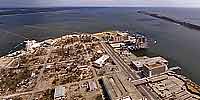Virginia Postrel nicely summarizes the battle over the Wright Amendment which limits air travel from Dallas’s Love field:
Schnurman’s tough-minded coverage of the issue demonstrates the great virtues of distant newspaper owners. His paper is owned by Knight Ridder, which isn’t entangled in local crony capitalism. The Dallas Morning News by contrast seems terrified to even voice an opinion on the issue. (And I’m not just annoyed that they turned down this piece on the grounds that they’d already run too much on the topic. In fact, I’m delighted. D Magazine paid me twice the DMN’s rate, and I like them better anyway.)
Viewed up close, the whole Wright discussion demonstrates the wisdom of my old boss Bob Poole, who has spent at least two decades arguing for airport privatization. Locally, the only thing any politico seems to care about is what’s good for DFW Airport and, secondarily, for the airlines. The traveling public doesn’t count–either in the political equation (too diffuse) or, apparently, in airport management. Anyone who’s had the misfortune of traveling through DFW knows that, with the exception of its new Terminal D, it’s hardly a comfortable or accommodating place. Neither does it seem to maximize revenue. No mall developer would use space so pathetically.
The article is also an interesting look at the “devils bargain” that sometimes occurs between politicians and the mainstream media.
